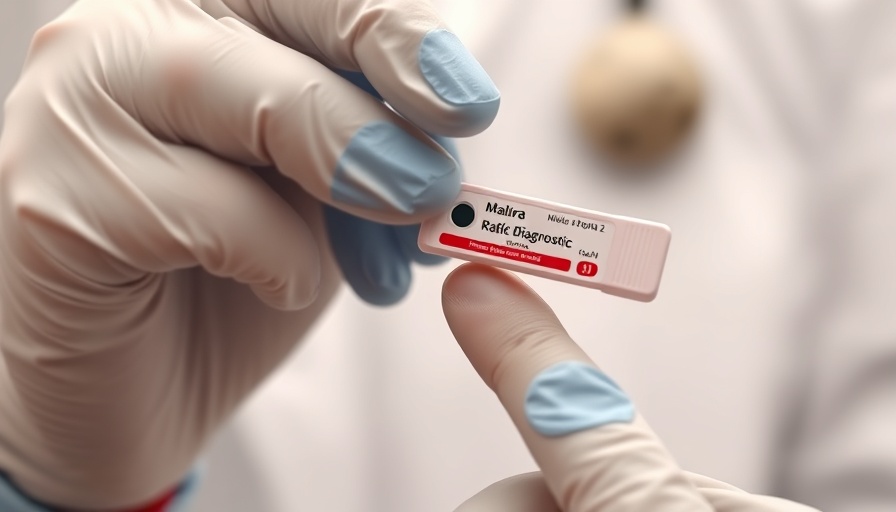
The End of an Outbreak: Understanding Uganda's Latest Battle with Ebola
On October 23, 2022, Uganda's Ministry of Health triumphantly declared an end to its latest Ebola outbreak that had plagued the nation since January 30, 2022. This significant announcement came after a thorough 42-day period without any new confirmed cases. According to the World Health Organization (WHO), this outbreak was particularly concerning with 12 confirmed infections and four tragic losses of life. However, in a beacon of hope, ten individuals successfully recovered from the Sudan strain of the virus, marking a pivotal moment in Uganda’s public health landscape.
We came across 'Uganda declares end to Ebola outbreak,' which covers the challenges and triumphs encountered during the latest health crisis, and it raised some compelling points that we’re expanding on in this article.
The Historical Context of Ebola in Uganda
Uganda has faced multiple Ebola outbreaks since the virus was first identified in 2000. With a history marked by repeated incidences, each outbreak has unveiled the complexities of managing a disease without a licensed vaccine. This latest outbreak, characterized by the Sudan variant, underscores the ongoing vulnerability of Uganda due to its geographical and ecological context—home to extensive tropical forests that harbor natural reservoirs for the virus. The nine instances of Ebola detection exemplify a broader issue, highlighting the need for persistent vigilance in public health responses amidst an environment conducive to viral propagation.
Clinical Trials and the Quest for a Vaccine
The absence of a licensed vaccine for the Sudan strain poses a unique challenge. However, Ugandan health officials have taken innovative steps forward by authorizing clinical trials for a vaccine still under development. This trial, aimed at healthcare workers and close contacts of confirmed cases, represents a proactive approach to mitigate future outbreaks and exemplifies governmental efforts in addressing public health crises.
Global Context: Comparisons with Past Epidemics
The Ebola epidemic from 2013 to 2016 remains the deadliest in history, claiming over 10,000 lives in West Africa. This catastrophe was a wake-up call for the global community, prompting enhanced responses to outbreaks. The current situation in Uganda is a reminder of the progress made and the lessons learned from what was a multifaceted ordeal in West Africa. Understanding the socio-economic and political ramifications of past outbreaks can inform how countries opt to utilize their resources in combating diseases.
Implications for Regional Health Security
The end of this outbreak poses crucial questions about broader health security across the African continent. The regularity of Ebola cases in Uganda necessitates a regional cooperative approach in health initiatives. As experts emphasize, addressing the pathways of transmission and implementing proactive measures are essential to bolster health security. The outcome of Uganda’s efforts could also influence how other African nations structure their public health strategies in response to the persistent threat of Ebola.
Community Awareness and Engagement
Public awareness plays a pivotal role in managing Ebola outbreaks. The Ugandan government has taken steps to engage local communities to educate them on the risks associated with the disease. Comprehensive training for healthcare workers and community health volunteers is critical in ensuring preparedness and responsiveness should another incident occur. These community-driven initiatives are vital for fostering resilience within populations frequently exposed to health crises.
Lessons Learned and Future Preparedness
Each Ebola outbreak leaves behind lessons that inform future readiness. The experience from the current outbreak elucidates the importance of rapid response systems, effective engagement with local communities, and sustained investment into healthcare infrastructure. Natural reservoirs of the disease will persist; thus, Uganda's ongoing commitment to enhancing surveillance and rapid response systems is essential to prevent future outbreaks. As history has shown, the consequences of inaction can be dire.
In summary, while Uganda has declared the end of the Ebola outbreak, the lessons learned during this challenging period must not be ignored. Continued vigilance, community engagement, and investment in health infrastructure will be critical in ensuring that Uganda and other similarly situated nations remain resilient against potential health crises in the future. The global community must also recognize and support these initiatives, facilitating a united front against diseases that threaten the fabric of society.
As professionals in the field of public health, government accountability, and community well-being, understanding the implications of this outbreak and embracing lessons learned is crucial. Stay informed about updates on health initiatives and engage in conversations that shape our collective future, ensuring we are better prepared for the challenges that lie ahead.
 Add Row
Add Row  Add
Add 




Write A Comment